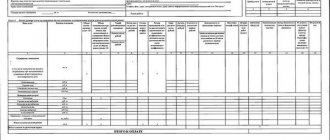The largest group of changes in the RF Government Regulation No. 1498 dated December 26, 2016 was made to the Russian Government Resolution No. 354 dated May 6, 2011. We’ll tell you today how the rules for providing utilities to property owners .
GIS, give up! (Part III) We place information on housing and communal services in the GIS Housing and Communal Services
162021
The concept of “non-residential premises” is clarified. Such a room must meet a number of characteristics:
- be in the design or technical documentation on the MKD or in the electronic passport,
- is not a residential premises,
- not included in the common property in the MKD.
Parts of apartment buildings intended to accommodate cars are also considered non-residential premises.
The conditions for the provision of utility services are being adjusted . Thus, utility services are provided to consumers from the following moment:
- from the date of issuance of permission to the developer to put the apartment building into operation - to the developer in relation to the premises in the apartment building, which he does not transfer under the transfer document,
- from the day the developer is issued permission to put the house into operation, but not before accepting the premises in this house under the transfer document - to the person who accepted this premises under the transfer deed.
Read how to calculate penalties for residential premises
Legal entities - owners of premises in the house
Organizations and companies can own premises in the house on a proprietary basis. It should be noted that, according to legal requirements, only citizens can use apartments for living. However, any company that owns premises can use it for professional activities, for example, to place an office or rent it out to people on a daily basis. At the same time, it is impossible to equip production in a residential area. Professional activity can be limited to the provision of services, for example, legal advice or trade.
Despite this, the area is still heated, water and electricity are supplied. A legal entity, one way or another, uses public places - entrance, elevator, garbage containers. For this reason, any company is required to bear the costs associated with utilities.
Responsibilities of the performer
The list of responsibilities of the utility service provider . The following have been added to those already installed:
- checking the condition of the control unit, general and room control units, distributors - no longer than 10 working days from the date of receipt of the application,
- determination of the amount of payment for heating utilities based on the readings of the thermal energy budget,
- use of readings from the ODPU of cold water, hot water and electricity when determining the amount of payment for the heat exchanger for one unit.
Another important responsibility of the CG performer is informing consumers. At information stands, on the official website of the contractor, or at least once a quarter in payment documents, it is necessary to place the following data:
- about the consequences of not allowing the contractor to enter the residential or non-residential premises occupied by the consumer on the agreed date and time to check the control system,
- about the consequences of interference in the work of the control center.
Also, the executor of the control system acquires additional rights. Thus, no more than once every 3 months, he can check information about the readings of metering devices and check the condition of such control devices. You can check the condition of the control panel no more than once a month, provided that the control panel is installed in a place where the contractor can have access without the presence of the consumer, or in a non-residential premises.
indicators of antimagnetic seals when putting the control unit into operation or during inspections at the control unit , with the help of which it is possible to establish the fact of unauthorized interference in the operation of the control unit.
CU performers can install and put into operation ODPU in apartment buildings, the owners of premises in which are obliged to independently install PU in their home. And also notify consumers about the debt that has arisen to pay the utility bills by:
- SMS message,
- a telephone call with a recording of the conversation,
- e-mail,
- through your personal account in GIS Housing and Communal Services.
Conclusion of contracts for the provision of utility services
191900
Utility tariffs
According to general rules, tariffs for utility services for legal entities are set by local authorities, taking into account the characteristics of the region. The legality of sizes is monitored by the Federal Antimonopoly Service. The upper and lower limits of prices are indicated in the contract for the provision of services or in appendices to it. You can also make a reference to the decision of the local authority. It must be posted in an accessible place, as well as on the information resource of the management company. In the process of fulfilling contractual obligations, prices for services may be subject to adjustment. Price changes can also be initiated by the organization itself.
This is possible in the following cases:
- Inadequate quality of services provided.
- Unreasonable delay.
- A break in the provision of a service whose duration exceeds the established maximum.
Owners must be informed of price changes no later than 30 calendar days before the invoice is issued.
Q. What services does the housing and communal services sector provide?
A. The definition of housing and communal services (hereinafter referred to as housing and communal services) is contained in GOST R 51617-2000 “Housing and communal services
, according to which housing and communal services are the actions or activities of the contractor to maintain and restore the proper technical and sanitary-hygienic condition of buildings, structures, equipment, communications and housing and communal facilities, removal of household waste and supply of electricity and drinking water to consumers, gas, thermal energy and hot water.
Housing and communal services are traditionally divided into:
- Utilities - hot water supply, cold water supply, sewerage, electricity supply, gas supply (including the supply of domestic gas in cylinders), heating (heat supply, including the supply of solid fuel in the presence of stove heating).
From January 1, 2021, municipal services will also include municipal solid waste (MSW) management services. - Housing services are works and services for the management of an apartment building, maintenance and ongoing repairs of common property in an apartment building.
Housing and communal services are also included in the All-Russian Classification of Services to the Population, which distinguishes between housing and utility services.
Types of services for legal entities
The type of public services provided to legal entities does not differ from those provided to individuals. They are reflected in the Decree of the Government of the Russian Federation of May 6, 2011 No. 354.
These include:
- Hot and cold water supply.
- Sewerage.
- Providing electricity.
- Gas supply.
- Heating.
- Collection, transportation, disposal and disposal of household waste.
A more detailed list is determined by the terms of the contract being concluded. It depends on the purpose of using the premises.
Types of utilities supplied
The types of services classified as public services are defined in Government Decree No. 354 dated May 6, 2001.
Thus, according to this act, the list of public services may include:
- supply of cold and hot water;
- sewerage and drainage maintenance;
- electricity supply;
- gas supply and maintenance of gas equipment;
- heating provision;
- collection and removal of solid waste.
Thus, other services cannot be included in the utility category. However, a housing organization has the right to include in the list of expenses, and therefore fees, its costs for maintaining an apartment building.
In the case of legal services other than utilities can be provided by persons only if there is an appropriate condition in the agreement. But in apartment buildings, such services can be included in the receipt, unless otherwise specified in the agreement or there is no agreement at all.
Much depends on whether the organization itself spends on maintenance and uses other premises in the multi-apartment building. As a rule, expenses for ensuring the operability of engineering and technical communications are included in the receipt in any case.
But is it necessary to pay legal fees? person for repairs must be determined in the agreement. If there is no such agreement, then the housing organization has the right, at its discretion, to distribute such expenses to legal entities. persons using non-residential premises in apartment buildings.
However, if legal the person is the owner of a residential premises, then payment is made according to the general rules, and expenses for repairs and maintenance are distributed to them.
We recommend that you read:
Owner's agreement with HOA
Therefore, it is very important to consider what type of building is owned by the legal entity. faces.
In addition, special attention should be paid to the basis of ownership of the premises. So, if the premises are used by right of ownership, then the organization or enterprise bears the full responsibility that any other owner of the property in the house bears.
If on a lease basis, then it is necessary to take into account the provisions of the lease agreement.
Contract for services
To provide public services, an agreement of appropriate content is concluded. This document must be drawn up in accordance with the requirements of current legislation. It must contain mandatory information about the parties to the transaction, its subject, cost and settlement procedure.
Parties to the agreement
In this case, the parties to the contract are the management company and the legal entity.
It should be noted that the transaction can be concluded directly with the resource-providing organization. Each party must have documentary evidence to sign the agreement. That is, a management or resource-providing organization is issued a license, and a legal entity disposes of the premises as an owner or a tenant, which is confirmed by an agreement or certificate.
Subject of the agreement
The subject of the transaction, in this case, is the procedure for providing services. The agreement, as a rule, states that one of the parties, that is, the management company, is obliged to provide utility resources, and the legal entity undertakes to accept them and pay for them. In this case, the text of the agreement can reflect a detailed list of such services. This can be drawn up in the form of a separate annex, which will be an integral part of the contract.
Payment order
The cost and payment procedure is another mandatory condition of the concluded agreement. The specific amount is not indicated in the text of the document, since it can change from time to time, based on the amount of resources consumed by the legal entity. Therefore, reference is made to the decision of the local authority, as well as to the annex to the agreement.
The current regulatory legal acts determine the frequency of payment for the provided utility services. Payment must be made no later than the tenth day of the month following the reporting month.
It should be noted that the parties to the transaction may establish other frequency. In this case, the legislation makes reference to the terms of the contract being concluded. With regard to payment, the management or resource supply company also assumes some obligations. We are talking about calculation information. Information must be provided to the payer no later than the first day of the month following the reporting month. At the same time, according to the terms of the contract, other deadlines for the provision of information can be determined.
The payment method in practice is cashless payment. That is, the due amount of money is transferred to the contractor through a bank or post office.
Q. How are the activities of organizations providing housing and communal services regulated?
ABOUT.
- Constitution of the Russian Federation
, which enshrines the right to housing, private property, and the principle of inviolability of the home. Based on these provisions, legislation in the sphere of providing housing and communal services is being developed; - Housing Code of the Russian Federation
- Federal Law “On Water Supply and Sanitation”
(No. 416-FZ dated December 7, 2011), Federal Law “On Heat Supply” (No. 190-FZ dated July 27, 2010), Federal Law “On Gas Supply in the Russian Federation” (No. 69- Federal Law dated March 31, 1999) - Decree of the Government of the Russian Federation dated May 6, 2011 No. 354
“On the provision of utility services to owners and users of premises in apartment buildings and residential buildings” - Decree of the Government of the Russian Federation of August 13, 2006 No. 491
“On approval of the Rules for the maintenance of common property in an apartment building and the Rules for changing the amount of fees for the maintenance and repair of residential premises in the case of the provision of services and performance of work on the management, maintenance and repair of common property in an apartment building of inadequate quality and (or) with interruptions exceeding the established duration" - Decree of the Government of the Russian Federation dated 04/03/2013 No. 290
“On the minimum list of services and work necessary to ensure proper maintenance of common property in an apartment building, and the procedure for their provision and implementation” - Decree of the Government of the Russian Federation of May 15, 2013 No. 416
“On the procedure for carrying out activities for the management of apartment buildings” - Decree of the Government of the Russian Federation of September 23, 2010 No. 731
“On approval of the standard for information disclosure by organizations operating in the field of management of apartment buildings” - Law of the Russian Federation “On the Protection of Consumer Rights”
I have listed the main documents regulating the activities of organizations providing housing and communal services , without touching on the topic of major repairs, the provision of housing for social rent, relocation from emergency or dilapidated housing, although these are also housing and communal services.
You will probably be interested in looking at the mental map “Accommodation in dormitories”, which explains in detail what documents are needed to obtain a room
Or HERE you will find out what applies to utilities
How can a pensioner receive a subsidy to pay for housing:
Responsibility for non-fulfillment
Responsibility for improper fulfillment of the terms of the contract is indicated in its terms. It is material in nature. For the performer, it is expressed in compensation for the damage that was caused to the user. The reasons for this are, first of all, the inadequate quality of the services provided, as well as their unreasonable delay. For example, a legal entity used its own premises for a retail outlet. Due to the fault of the contractor, there were power outages. Accordingly, the refrigeration equipment could not function, as a result of which the food spoiled. The contractor will be required to reimburse their cost subsequently.
At the same time, the user can also cause losses to the management company. Most often they are expressed in violation of the procedure and deadlines for paying fees. Such cases harm the interests of the performer. Responsibility in this case is of a material nature. At the same time, this is not limited to just the payment of funds. The contractor has the right not only to limit the provision of services, but also to suspend them completely until the debt is repaid. The resumption of supplies is restored within two days from the moment the required amount is paid.
Utility debt
Debt on utility payments is one of the most common violations of the terms of an agreement for the provision of utility services.
For such cases, the current legislation provides for a measure of liability in the form of a penalty. However, the application of these penalties is possible under certain conditions. It lies in the duration of the debt. The accrual of penalties begins on the thirty-first day after the expiration of the deadline for payment. From the specified time until the ninetieth day, the fine will be one three hundredth of the refinancing rate established by the Central Bank of the Russian Federation for each day of delay. From the ninety-first day the amount will be equal to one hundred and thirty. That is, the amount of penalties increases in proportion to the number of days of delay.
Debt collection
Either party to the transaction has the opportunity to collect debts from the other party in several ways. The most optimal way is to submit a claim. In this case, you can even negotiate and resolve the dispute out of court. To do this, the initiator must send a claim to the other party.
The text of the document must indicate the following:
- Information about the parties to the transaction - name, addresses, contact numbers.
- Date and place of conclusion of the agreement, its subject, payment procedure.
- What was the violation of the terms of the deal?
- Type and extent of damage caused.
- Terms of its reimbursement.
- Legal consequences that will occur in case of non-compliance with requirements.
- List of attached documents.
- Date of registration and signature of the initiator.
The claim may be accompanied by a copy of the concluded agreement, information about making payment, and a calculation of the amount owed. Documents are handed over to the other party, sent by mail or the Internet.
If the initiator’s demands were not met or he was not satisfied with the answer, then the dispute that arose can be resolved in arbitration court.
To do this, you will need to fill out an application and attach documents substantiating the claims. It should be noted that regardless of the order in which the application is considered, the initiator will need to pay a state fee. Expenses of this nature may subsequently be recovered from the guilty party.
For such disputes, there is also a writ procedure. It is possible if the amount of the debt does not exceed four hundred thousand rubles and is recognized as a debtor. This is also permitted in cases where a demand is made for the collection of mandatory payments and sanctions, if the total amount of the amount to be collected, indicated in the application, does not exceed one hundred thousand rubles.
Arbitrage practice
One of the courts of the Russian Federation considered the claim of the management company against the municipal authority for the collection of debts for utility services and reimbursement of expenses for paying state fees. The representative of the initiator of the demands supported and asked to satisfy them in full. The defendant did not agree with this. The representative justified his position by the fact that there was no contract for the provision of services concluded between the municipal authority and the management company.
In the process of studying the presented documentary materials, the following was established. The general meeting of residents of the apartment building appointed the plaintiff as the management company, and tariffs were determined. This is confirmed by the minutes of the general meeting. In accordance with the extract from the Unified State Register, the defendant is the owner of one of the non-residential premises located in the house. The plaintiff sent certificates of completed work to the municipal authority. However, the latter did not pay for them. In this regard, the defendant was sent a claim about the existing debt, which remained unaddressed. In accordance with the requirements of current legislation, the owner of property in an apartment building, including non-residential premises, bears the costs of housing and communal services on an equal basis with other users. At the same time, the municipal body did not comply with this rule, which led to the formation of debt. The fact of evasion of duties is confirmed by the submitted documents.
Based on the above, the court made a decision. The defendant was ordered to pay in favor of the plaintiff the deposit for payment of services, late fees, and also reimburse the costs of paying the state fee.
The operative part of the decision of January 30, 2021 in case No. A16-2261/2017
- Look
Legal entity as a consumer of utilities
Legal entities receive utility services on the same basis as ordinary residents of apartment buildings.
In this sense, consumption can be expressed in the following forms:
- Consumption of utilities to provide non-residential premises in apartment buildings owned by legal entities.
- Consumption for the purpose of maintaining residential premises owned by a legal entity. persons.
- Consumption of utilities for production purposes.
The form of consumption is of great importance, since payment for services is made in accordance with this form. Thus, if persons consume legal services of housing and communal services (housing and communal services) in the form of maintaining residential premises, then the payment procedure is established the same as for ordinary residents of such premises.
If the premises are used for production purposes, then the procedure for relationships with service providers is regulated in a special manner. However, this does not deprive the right to enter into agreements with intermediaries, for example, management companies or HOAs (homeowners' associations).
What is the main difference from the consumption of communal services by individuals? Unlike individuals, for whom general conditions are established by federal and local legislative acts, for each legal entity, if it consumes utilities for production purposes, the conditions are established separately, by a special agreement.
That is, legal relations. between persons and suppliers or intermediaries are primarily regulated by general civil law rules, as well as business rules. Responsibility and consequences for violating contractual rules are also determined by the agreements themselves.







